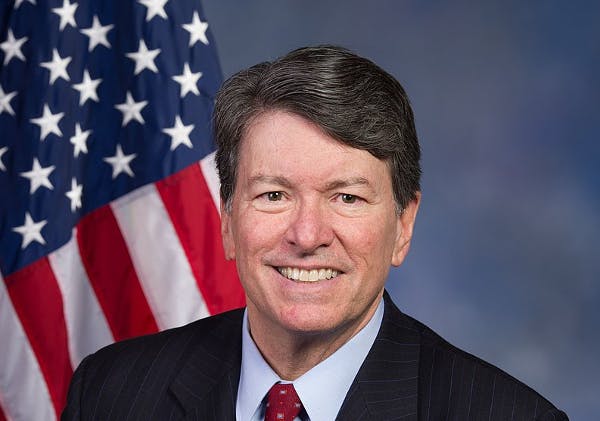GOP Aims To Delay New York Primaries Due to Disputes With Redistricting
Republicans want to avoid elections using maps that they allege are gerrymandered to benefit Democrats.

New York Republicans will be pushing for a delay in party primaries during a court hearing today focusing on the state’s disputed congressional redistricting map.
Republicans are challenging the constitutionality of the new map, which could decide the balance of power in the House of Representatives, and plans suggested by the judge in the case for the 2022 election.
At a hearing earlier this month, Judge Patrick McAllister suggested holding elections under the existing schedule with the newly proposed maps — which Republicans allege are gerrymandered — and if they are declared unconstitutional, then scheduling a special election next year.
Republicans called into question the constitutionality of holding special elections under this scenario and whether delaying the primary would create enough time to draw new maps.
“The federal Constitution makes plain that House members can only run for two-year terms and we also believe that the primary for the U.S. House and state senate could be pushed back to as late as early August and still meet the legal requirements,” a spokesman for Republicans in the case, Representative John Faso, told The New York Sun.
“We think that’s a better result than running on unconstitutional lines this year,” he added.
The case at hand concerns whether New York’s new district and state senate maps are constitutionally sound. The Republicans are arguing that the new maps unfairly and illegally favor the Democratic Party.
In New York, a 2014 constitutional amendment bans maps being drawn “for the purpose of favoring or disfavoring incumbents or other particular candidates or political parties.”
The new maps create 20 seats that favor Democrats, two competitive seats, and four Republican favored seats in the state’s congressional delegation. If enacted, analysts say, the maps will likely net three Democratic seats and eliminate two Republican seats.
Currently, there are eight Republican members of the New York delegation to the House of Representatives. If these maps were enacted that number could shrink to as few as four.
Overall, Democrats hold the majority in the House of Representatives by 11 seats, meaning just a six-seat swing could put Republicans in the majority.
The New York primary is scheduled for June 28. The assumption of the court has been that if the maps are found unconstitutional, then there would not be time to enact new maps.
“I believe the more prudent course would be to allow the current election process to proceed and then, if necessary, allow an election process next year if new maps need to be drawn,” Judge McAllister said.
“I do not intend at this time to suspend the election process,” he added.
Republicans in court have suggested that this solution would be illegal, pointing to both the federal and state constitutions.
They note that the United States Constitution states: “The House of Representatives shall be composed of Members chosen every second Year by the People of the several States” on “Tuesday next after the 1st Monday in November, in every even numbered year.”
The Republicans are arguing that the Constitution requires members of the House to run for two-year terms, thus making a hypothetical one-year term and a special election unconstitutional.
On possible way through these complaints, a public policy analyst, Cameron Macdonald, told the Sun, would be to hold elections with the new maps and, if necessary, redraw maps before the 2024 election, ensuring representatives serve two-year terms.
This is the solution settled on in Alabama, where the legislature “passed maps that a court then said were not constitutional based on a lack of representation of African Americans by districts,” Mr. Macdonald told the Sun.
Republicans also note that in the New York State constitution, there is a stipulation that state senate members “shall be chosen for two years,” which parallels the arguments concerning the representatives in the House.
They have also asked the court “what are the election deadlines” that would be “consistent with the time needed to create and adopt remedial maps” if the court were to declare the new maps unconstitutional.
Messrs. Faso and Macdonald agreed that New York could hold primary elections as late as August and still comply with federal election law.
These issues will be heard today in the New York supreme court at Steuben County.

